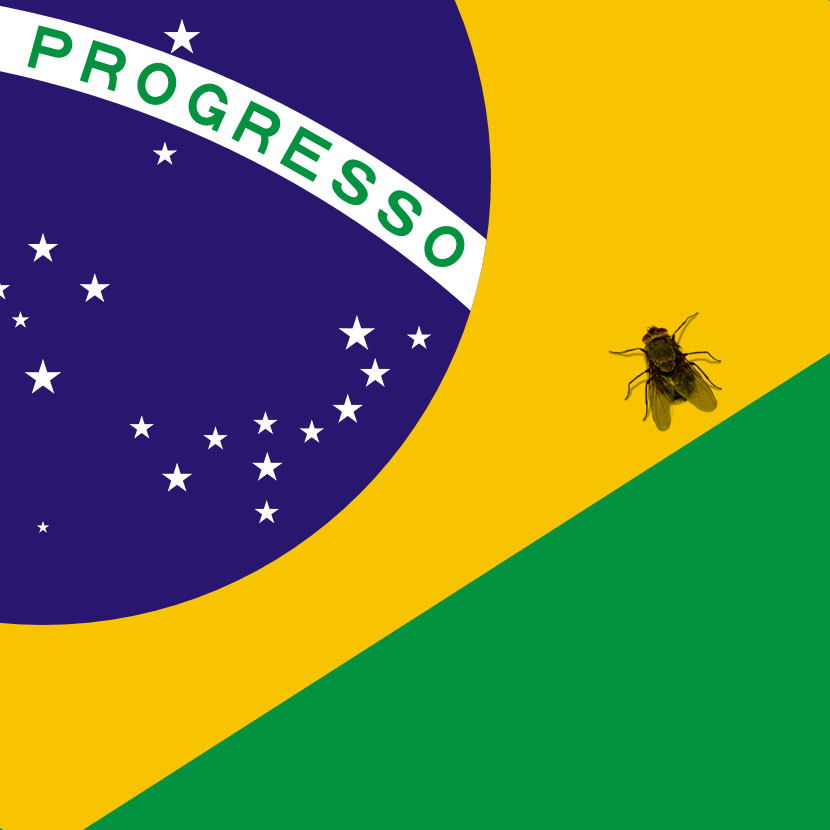Brazil // Beyond the elections~ 5 min

This article was written in cooperation with a companion from the Aldeia Rexiste collective.
Brazil has turned into a global topic. Presented with the possible election of the fascist candidate Jair Bolsonaro, the debate on the left focuses on the “lesser evil”. In such a scenario, here are some considerations that demonstrate the structural and racist violence that Brazil lives with and which has the State at its service. Bolsonaro is just the cherry on top of the cake.
Considering that the State becomes a political instrument of capitalism, which establishes over the population a domination “(…) whoever speaks of the State, necessarily says domination and, in consequence, slavery; a State without slavery, declared or disguised, is inconceivable (…)” (Bakunin, 1990). The State is thus used to give an appearance of legality and law to the damage caused by a few to the majority. Constitutionalism and democracy thus become modern forms of a supposed consent of the governed.
The last few decades of Anti-Drug Laws, Criminal Organization Law and Anti-Terrorist Law have intensified the highly repressive state of exception created by successive Brazilian governments. Supported by the narrative of the war on drugs and crime, it did nothing but attack, criminalize and imprison social movements along with the black and peripheral populations. For example, if we look at the numbers regarding population incarceration in Brazil, the data for 2016 shows that over 64% of imprisoned people are black. The documentary “News of a Particular War” demonstrates quite well what the drug war policy in Brazil has become and what its real interests are.
Several cases attained national notoriety in the last few years as symbols of the struggle against a repressive State that doesn’t accept popular insurgency. The 6 of Porto Alegre, Rafael Braga or the 23 of Rio de Janeiro are synonymous with what Brazil has turned into.
Concrete examples
“Whatever its form or tendency, the State is by nature conservative, static, intolerant and against change (…)” (Goldman, 2015). Through the monopoly on violence – the more intense the greater the contestation – the State seeks to perpetuate itself as hegemonic power.
Rafael Braga is a young black can picker from the periphery. He became the first political prisoner of the June 2013 protest days. Rafael Braga’s “crime” – transporting plastic bottles of Pinho Sol and sanitary water, supposed incendiary ingredients. An imprisonment surrounded with contradictions and evidence forgery, in which the only testimonies are from Military Police falsifications.
In Porto Alegre, the persecution and criminalization of protests ended with six activists of the Struggle Block being accused of “forming an armed criminal association to carry out qualified damage to patrimony, explosion, theft, in a crossing area of people and goods and committing bodily damage to a military policeman.” Their “crime” was to dare fight against the illegal increase in public transportation fares in Porto Alegre.
The 23 of Rio de Janeiro were condemned “(…) to sentences of 5 to 7 years in closed regime, for daring to denounce the public transportation mafia, the corruption of the Rio de Janeiro government and the impositions of the Dilma government to build the FIFA World Cup.” Others were condemned to 30 years in prison for qualified homicide of the journalist Santiago Andrade, despite a complete lack of causality or proof of the crime. Several women were also turned into complete “monsters” by the media and condemned, the reporting done about them the proof of their guilt despite a lack of any real evidence.
The criminalization of social movements which began in 2013 took on undeniable electoral proportions. For example, between the first and second electoral turn of that period in Rio de Janeiro, the population found itself trapped between two candidates which had a significant role in the process of criminalizing social movements. One of them is judge Witzel, who ordered the eviction of the Maracanã Village. He made several declarations of support for Bolsonaro during his electoral campaign, not even bothering with disguising his authoritarianism. Disputing the second round next to him, and gathering the greatest number of votes during the first, comes Eduardo Paes. His administration approved the eviction of thousands of people in order to make room for the overpriced construction projects for the FIFA World Cup and Olympic Games.
Brazilian society now faces the fear elections. The supposed “left parties” hide their ever deepening adherence to a neoliberal and developmentalist political program and present themselves as the “saviors” of society in the face of the right-wing ascension. The idea of the “(…) neoliberal state is based on strong individual property rights, subjugating people to the rules of law, and on the idea of free market institutions (…)” (Harvey, 2005). They also accuse their non-electorate or those who turn in blank votes and abstain of being guilty if fascist candidates are elected. They thus feed the atmosphere of fear and reflect the anti-terrorist politics that only serve to maintain the interests of the ruling class.
Whomsoever is elected, we are certain that fascism is bigger than them. Social movements must continue to organize to face a developmentalist government or a fascist one. Either will threaten the black quilombola, indigenous and favela slum populations. For them, police violence will continue to be a daily routine.
Bakunin, M. A., & Shatz, M. (1990). Bakunin: Statism and Anarchy. Cambridge University Press.
Goldman, E. (2015). O indivíduo, a sociedade e o estado e outros ensaios. Hedra.
Harvey, David (2005): A Brief History of Neoliberalism. Oxford University Press.




